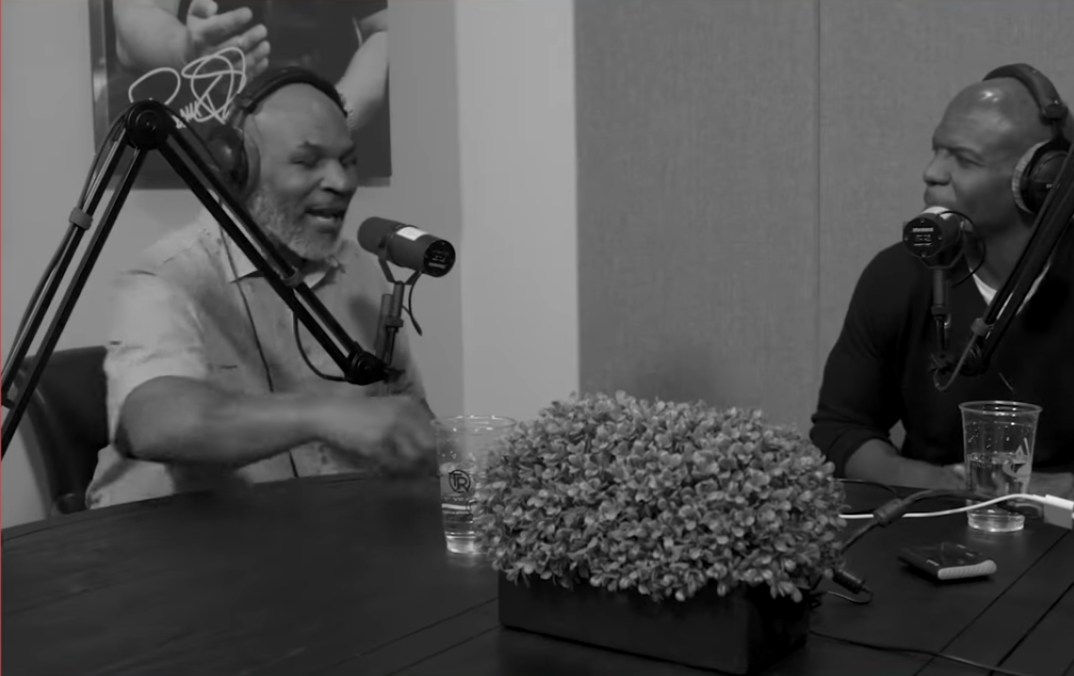OP-ED: Did Terry Crews forget Mike Tyson was convicted of rape or does Mr. #Metoo not care?

In recent months, actor Terry Crews has been rightly lauded for his activism in conjunction with the Me Too Movement after going public about his own sexual assault. His condemnation of “the cult of masculinity” has provided a blueprint for how men can hold each other accountable. But his recent appearance on Mike Tyson’s “Hot Boxin’ With Mike Tyson” podcast was ill-advised, and threatens the foundation of his public allyship. Though he was undoubtedly well-meaning, by appearing on Tyson’s show, Crews is directly consorting with and endorsing a man who has a documented history of violence and abuse towards Black women.
When the Me Too Movement exploded in the wake of the allegations against Harvey Weinstein, women across the world felt renewed empowerment to share their own stories of sexual assault and harassment. Terry Crews was one of the few male public figures to join the chorus and speak openly about his own assault, expanding the conversation about who we perceive to be vulnerable and how factors like race can complicate our understanding of victimhood. Crews has been savvy in using the incident as a springboard to continue his past work of amplifying conversations about the damaging effects of the pervasive culture of toxic masculinity.
This is why it’s so disappointing that Crews chose to appear on a show hosted by Mike Tyson. In 1992, Tyson was convicted of the rape of then 18-year-old Desiree Washington, Miss Black Rhode Island. Sentenced to six years in prison and four years of probation, Tyson ultimately served less than three years. And after a whirlwind marriage and divorce to actress Robin Givens, Tyson was quoted in his biography as saying that hitting her was “was the best punch I’ve ever thrown in my entire life.” The violence he inflicted on Givens negatively affected her public reputation, and for years she was framed as a gold-digger seeking to destroy a successful Black athlete. The harm he inflicted on Black women cannot be erased.
In a way, it’s understandable why Crews might want to reach out to a man like Mike Tyson. The legendary boxer has led a life that exemplifies the very tenets Terry Crews now condemns. Tyson’s fanbase is likely the exact audience most in need of hearing Crews’ arguments. Crews spoke passionately about the way his rage issues affected his family, his relationships and his marriage. It was also clear that his hair-trigger temper was a contributing factor in his past unhappiness and he talked about finally understanding that lashing out in anger came with dire consequences that risked his family’s wellbeing. He knew he need to develop the discipline to handle his own assault through official channels rather than retaliate through violence.
As always, Crews’ message was clear and necessary.
Unfortunately, his ethos of consequences rings hollow by the very fact of the interview. As Crews himself states in the discussion, men need to hold other men accountable, and it was disappointing to see him fail Black women. To discuss the Me Too Movement with a notorious abuser like Mike Tyson without pushing back or interrogating the boxer’s complicity in the very kinds of violence the movement hopes to eradicate is a slap in the face to the scores of Black women Crews heralded for supporting him when he came forward with his own story.
Like many of the men accused since 2017, and Crews’ own abuser Adam Venit, Tyson has found a renewed and comfortable career in entertainment, unencumbered by the severity or notoriety of his past actions. Well-intentioned as he may be, Crews made a serious miscalculation by not challenging Tyson on his past actions or meaningfully holding him to account for the harm he has caused. Over the course of the 30 minute discussion, Crews only briefly alludes to Tyson’s past crimes, and even then, does so in the specific context of advocating for his forgiveness. Though Crews is correct that “forgiveness is for everybody” it is still something that must be earned. As he was not the injured party, it was not his place to metaphorically wipe Tyson’s slate clean, especially since Tyson has not meaningfully demonstrated remorse or regret. It’s also not enough to declare that Tyson has “paid his price” because he went to prison. It is incumbent on Mike Tyson himself to indicate how he has changed, make amends to those he has hurt and commit to modifying his behavior.
With the increased visibility of his profile, Terry Crews has a responsibility to tightly manage his public associations and endorsements. By agreeing to be a guest on Mike Tyson’s show, Crews brought value and views to a platform that directly benefits an abusive man and undermined his credibility as an advocate for women. We can only hope he’ll be more thoughtful with his choices in the future.
_______________________________________________________________________
Cate Young is a freelance writer based in Trinidad and Tobago and the creator of BattyMamzelle; a feminist pop culture blog focused on film, television, music and critical commentary on media representation.
